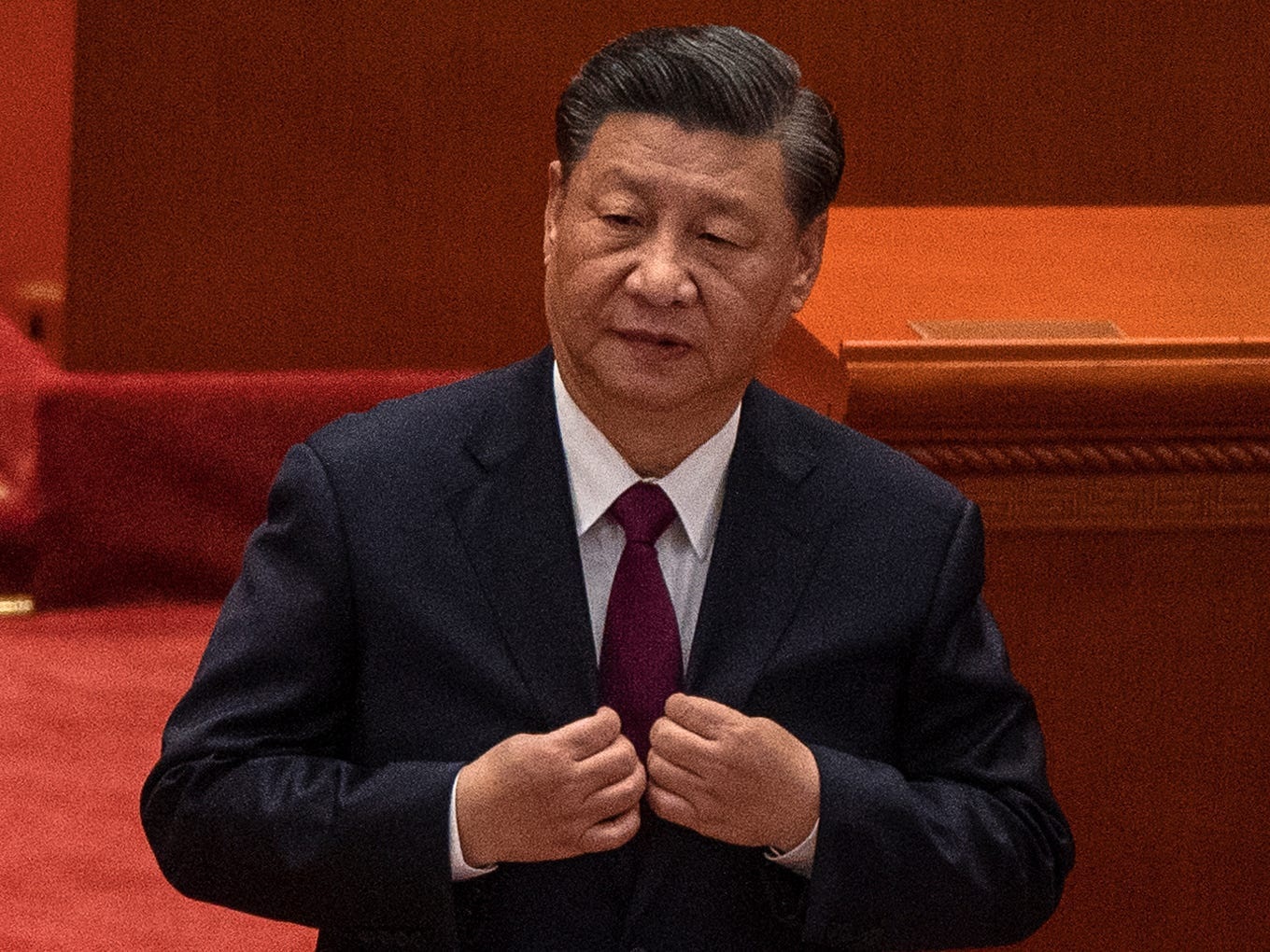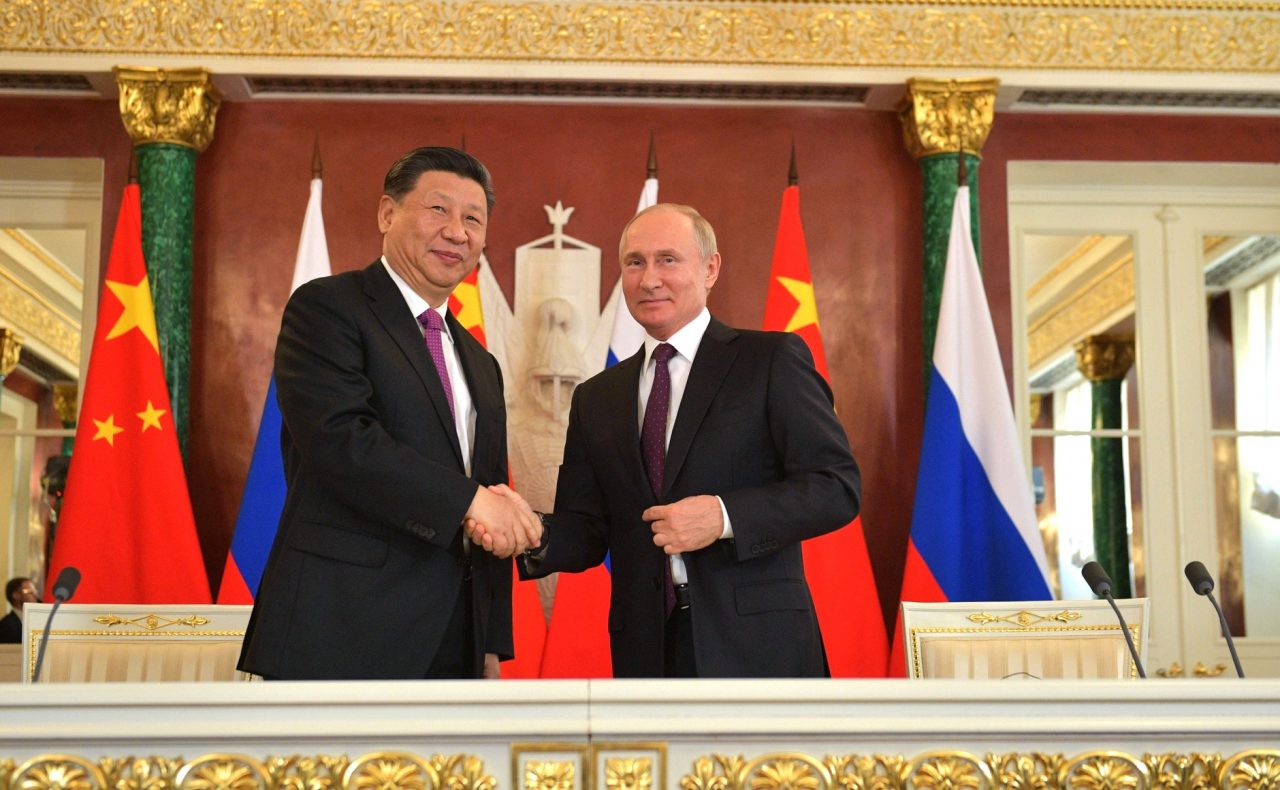Chinese officials are scrambling to find ways to defend its trillions of dollars in foreign assets from possible Western sanctions like its key ally Russia is facing after the invasion of Taiwan.
With ‘Resources, Capability & Intent’, China Remains The Biggest, Long-Time Threat To US Than Russia — USAF
China’s regulators held an emergency meeting on April 22 with its central bank, finance ministry, domestic banks operating within China, and international lenders such as HSBC.
The emergency meeting was prompted by the harsh US-led sanctions on Russia that have frozen $300 billion of $640 billion held by Russia’s central bank—the Bank of Russia (BOR)— in foreign reserves.
These unprecedented measures against a country’s central bank have raised central bank reserve holdings’ geopolitical and sovereign risk. They have also given rise to fears in Beijing about the possibility of similar sanctions being leveled against China in the event of its military invasion of Taiwan.

Interestingly, the news of the meeting comes after reports of top-level talks between the US and UK officials specifically to discuss how they can cooperate to manage a crisis in Asia should China invade its neighboring island nation, which it regards as its province.
China claims Taiwan as part of its territory despite the island nation functioning under a separate government since 1949.
Option Considered In The Meeting
Reports suggest that the US is considering proportionate sanctions on China if it invades Taiwan, envisioning a similar scenario to the one playing out in Ukraine. According to the South China Morning Post (SCMP), China has $3.2 trillion in foreign reserves.
Russia’s “Invisible Missiles” – Meet Putin’s Super-Weapons Than Even US President Called ‘Impossible To Intercept’
The Financial Times (FT) reported that senior regulators, including Yi Huiman, chairman of the China Securities Regulatory Commission (CSRC), and Xiao Gang, who headed the CSRC from 2013 to 2016, asked bankers how they could protect their overseas assets.

“No one on-site could think of a good solution to the problem,” one source told the FT. “China’s banking system isn’t prepared for a freeze of its dollar assets or exclusion from the Swift messaging system as the US has done to Russia.”
China wants to increase the circulation of the renminbi in comparison to its US-dollar holdings.
One of the ideas considered was to force Chinese exporting businesses to do away with their dollar holdings in exchange for renminbi. There was another suggestion that involved cutting down the $50,000 quota that Chinese nationals are allowed to purchase every year for overseas travel, education, and other offshore purchases.
US’s Capacity To Sanction China Is Doubtful
However, experts doubt the capacity of the US to sanction China — the world’s second-largest economy — in the same way it did Russia.
“It is difficult for the US to impose massive sanctions against China. It is like mutually assured destruction in a nuclear war,” said Andrew Collier, managing director of Orient Capital Research in Hong Kong.
Hung Tran, a senior non-resident fellow at the Atlantic Council and the former deputy director at the International Monetary Fund, recently war-gamed the scenario of Western sanctions freezing China’s overseas assets and Chinese counter-measures.
Tran noted that China is ten times bigger than Russia in terms of the size of the economy, plus it is much more integrated into the global economy and financial system. Therefore, western sanctions on China will have far more significant consequences than similar measures against Russia.
According to Trans, China has around $3.4 trillion of identifiable international assets at risk of possible sanctions. At the same time, it has liabilities to, or assets inside the country of, international investors and companies mainly from Western countries, thereby affording Beijing plenty of room to take retaliatory measures.
China can also freeze more than $1.2 trillion of Chinese domestic stocks and bonds owned by foreign investors. Furthermore, China can default on many of its external debts, mostly in the US Dollars and Euro.

A scenario of Western sanctions against China will also involve disruption of economic exchanges, mainly trade between the two sides.
This would probably have a more significant impact on China because exports account for 18.5%, or a relatively large share of China’s GDP, one-third of which goes to the US and Europe, and therefore their disruption could cause a massive decline in China’s economic activity.
The US will be less impacted by this, as its export to China constitutes only 11.7% of its GDP, but the impact on Europe would be more substantial, with EU exports to China accounting for 17.6% of GDP.
Also, American and European consumers may feel goods shortages and inflation because of this.
Western sanctions coupled with Chinese countermeasures will inflict substantial damage on both sides. “This could lead to a situation of economic MAD—or mutually assured destruction—reinforcing the more catastrophic nuclear MAD,” writes Tran.
- Written by Tanmay Kadam/EurAsian Times Desk
- Contact the author at etdesk@eurasiantimes.com
- Follow EurAsian Times on Google News




